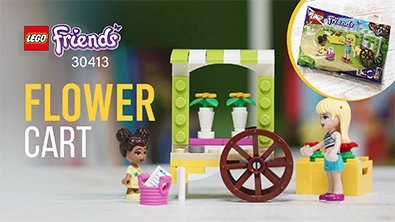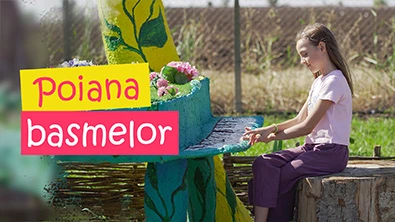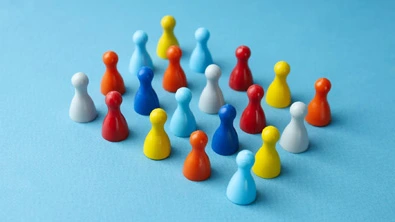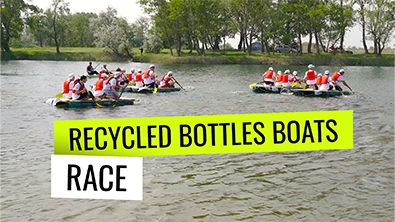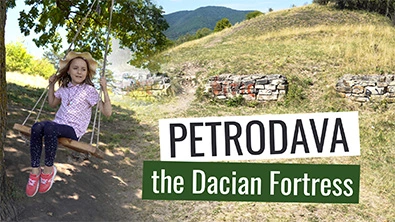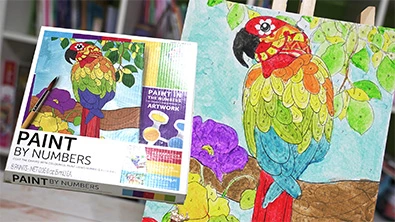How can we develop the ability to make decisions with logical thinking
Children with logical thinking will be able to easily develop their autonomy, self-confidence and critical thinking skills.

The ability to make decisions with the help of logical thinking can be developed from an early age. It starts with encouraging children to identify and apply logical principles in everyday life. It is extremely important that the first notions of the relationship of cause and effect are associated with real examples in order to be able to understand the consequences of each possible option before making a decision.
Only after the first notions of the connections between the elements have been understood, logical thinking can be extended to various individual or group games. These activities help them develop their critical thinking and understand the logic behind events in an interactive, fun and engaging way.
Children who have the opportunity to observe their parents using logical thinking to make informed decisions are often influenced and inspired by their behavior. They will easily understand the steps and reasons that led to a decision.
By making decisions in a safe and positive environment, children learn to identify goals, assess available resources, and establish a plan of action to achieve those goals. These skills, supported by self-confidence, are essential to success in life.
Logical thinking and real life
We are on vacation. After a few days at the sea we decided to go hiking in the mountains. I chose a nature reserve arranged around a river. To the delight of the children, the accommodation is in a tent in an area specially arranged for camping. In the first days we explore the paths, test our physical condition and the desire to complete the tourist routes.
Tourist routes. Each tourist route is marked with a sequence of plates with its distinctive symbol. A simple, easily identifiable symbol. What happens if we miss a sign and deviate from the route? We risk going astray. What happens if we carefully watch each indicator? We reach our destination. In the evening, lying on the blanket, we discreetly discuss the concepts of consequences and risk-taking.
We admire nature. We listen to the rustling of leaves and the murmur of running mountain water. Flowing mountain water. A new opportunity for primary notions of logical thinking. We take out a sheet of paper and make a boat. What will happen if we put it on water? Does it stay put? Is it going downhill? Go up the hill? It goes downhill. Correct. It goes downhill. Why does it go downhill? Because the paper boat is carried by the water flowing downstream. This example helps children to be aware of the connection between the two elements. Running water and the paper boat. It’s a memory that will help him years from now.
Before leaving can we ask them what happens to the toys that were left in the grass? Will we find them at home when we unpack? Each time before handing over the accommodation, a careful check by all family members is indicated. Agreeing to participate in this check can lead to avoiding the loss of your most beloved toy.
When making decisions, children have to consider many variables. Identifying and understanding these variables and their consequences will help them develop their ability to organize their actions accordingly.
Logical thinking, games and problems
Logic games, whether individual or group, are based on a rulebook that contains the essential elements of logical thinking: the goal, the relevant information, and the rule set. Logical thinking involves analyzing the advantages and disadvantages of each available option and making a decision that leads to the achievement of the goal.
Games are a way to spend quality time with children. We can help them understand and comply with the regulation. We can support them and encourage them to continue until the end. We can help them identify options and make decisions. We can help them anticipate the consequences of a decision. We can help them find strategies to solve them faster.
Through the support and involvement of parents in logic games, children benefit from guidance, modeling and support in developing their logical thinking and problem solving skills.
The rules of the games may vary depending on the recommended age and may involve different types of reasoning, deductive or inductive. Inductive reasoning involves general conclusions from specific observations. Deductive reasoning involves specific conclusions from general premises or rules.
Inductive reasoning involves drawing general conclusions based on specific observations or a set of examples. It is based on identifying patterns or trends in observed data and drawing a general conclusion. For example, in puzzle games, children can notice patterns and trends in how the pieces fit together and draw general conclusions about how to solve the puzzle as a whole.
Deductive reasoning, on the other hand, is a logical process in which specific conclusions are drawn from general premises or rules. This type of reasoning is based on logical inferences and deductions and involves applying rules to arrive at a specific conclusion. For example, in the game of chess, players must apply the specific rules for the movement of each piece and anticipate the possible moves of the opponent in order to draw conclusions and make strategic choices.
Logic problems help children improve their ability to focus on a task and develop their mental stamina. It encourages them to think critically and analyze available information. It gives them the opportunity to learn through their own experience that a seemingly insignificant detail in a problem can be the decisive one. Attention to details, namely the ability to observe and interpret relevant information, developed with the help of logical games will allow them to find the correct solutions in complex logical problems.
Often times, a logic problem may contain subtle clues or hidden information that requires careful attention to uncover. A key word, a minor change in a statement, or a seemingly unimportant relationship between problem elements can be crucial to arriving at the correct answer.
Logical thinking in the family
It is important to allow children to witness the discussions that lead to decisions being made. They have the right to have the consequences of a possible decision explained to them and, as far as possible, to learn from their own experiences as they grow and develop.
Children can be involved, for example, in discussions about the repeated postponement of investments in various repair activities. The bicycle tire often deflates. A new wheel should be purchased. Do we buy now or delay? Most of us choose procrastination. Until one day when the wheel breaks completely and we have to carry it home in our arms. What did the children understand? They understood that this incident could be avoided if the bicycle wheel was repaired in time.
Let’s go back to the previous example of participating in checking the accommodation together before handing over. Children have the right to be repeatedly told that refusal to participate may result in the loss of their most cherished toy. To the extent possible, they also have the right to respect the consequences of their decisions.
Logical thinking involves anticipating the consequences of various actions. This refers to the ability to assess and understand the short- and long-term impact of various actions and make decisions based on them. Unlike logic games that give us the opportunity to try again and learn from our mistakes, in real life some decisions can have permanent consequences. It is important to give children a balanced perspective on reality in a way that is appropriate for their age.
At the same time, participating in decision-making discussions involves developing communication skills, empathy and conflict resolution. Together with their parents, children learn how to express their opinions, listen and consider the points of view of others. These skills are essential for developing critical thinking and effective communication, including when interacting with people with different perspectives.
As children express their point of view, we need to be open and understanding without judging or criticizing them negatively.
Logical thinking and self-confidence
Logical thinking and self-confidence are two interconnected aspects of children’s cognitive and emotional development.
Engaging children in as many age-appropriate challenges as possible, which stimulate and develop their logical thinking skills, builds their self-confidence. Every time they manage to find solutions in difficult situations, they feel more confident in their own abilities to successfully deal with more complex situations.
Making decisions allows children to develop their ability to self-reflect and self-assess. They can explore their personal preferences, values and interests and learn to take responsibility for the consequences of their own choices. By choosing their own preferences, children can develop and express their personal identity – an important step in building authentic self-confidence.
Logical thinking and decisions
Developing logical thinking and making decisions based on reasoning and objective assessment does not exclude the importance of emotions in decision making. Positive emotions, such as joy or excitement, can lead us to make certain choices.



